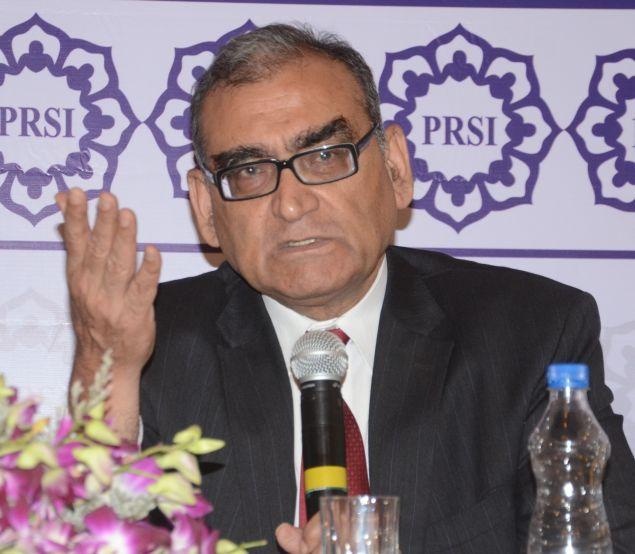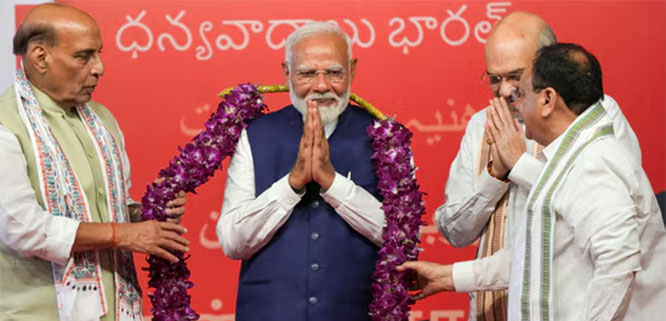
Aligarh, December 13: Chairman of Press Council of India Justice Markanday Katju today alleged politicians in independent India "have played a major role in spreading deeper the poison of Hindu-Muslim divide, whose seeds were sown by the British, for serving their own votebank politics".
Addressing a programme in Aligarh Muslim Univeristy (AMU), he said Pakistan was an "artificially-created state" by Britishers using the Hindu-Muslim divide.
"It is only a matter of time when the people of both the countries (India and Pakistan) will realise that their erstwhile Western rulers had poisoned their minds and hearts against each other for serving their own interest. They created the Hindu-Muslim divide and then concretised this legacy by the creation of Pakistan", Katju said.
"The real tragedy", he said "was that while the British sowed the seeds of discords in the hearts and minds of people, after independence agent provocateurs are continuing this nefarious policy".
"I have no hesitation to state that politicians have played a major role in spreading this poison deeper for serving their own vote bank politics", he charged.
According to Justice Katju, "in 1857, there was almost zero percent communalism in the country and today I have no hesitation to accept that 80% of both Hindus and Muslims have fallen prey to this dreadful malaise", he said.
"I am aware that my comments on this issue had earlier this week stirred a hornet's nest. Some newspersons in Pakistan have dismissed my views as the ranting of a lunatic", he said adding "Hindu-Muslim conflict was engineered by the British as a deliberate state policy for maintaining the British hold over India".
Claiming that history books were deliberately doctored by the British rulers, he said it was done to spawn communalism in India.
Referring to terror activities in the country, Katju said evidence was now mounting to suggest that whenever incidents of terror take place in India, "very frequently innocent Muslim youth are randomly picked up by security forces".
"This is not only unjust but also helps the actual perpetrators of such heinous crimes escape the clutches of the law. The main reason behind this is that our police force are not suitably equipped with all the modern technology and state-of-art investigative techniques for nabbing the actual culprits", he said.
Whenever an incident of terror takes place, the police are under pressure to nab the culprits at the earliest and "the easiest way out is to implicate innocent persons to ease the pressure of public opinion", he said.








Comments
Add new comment